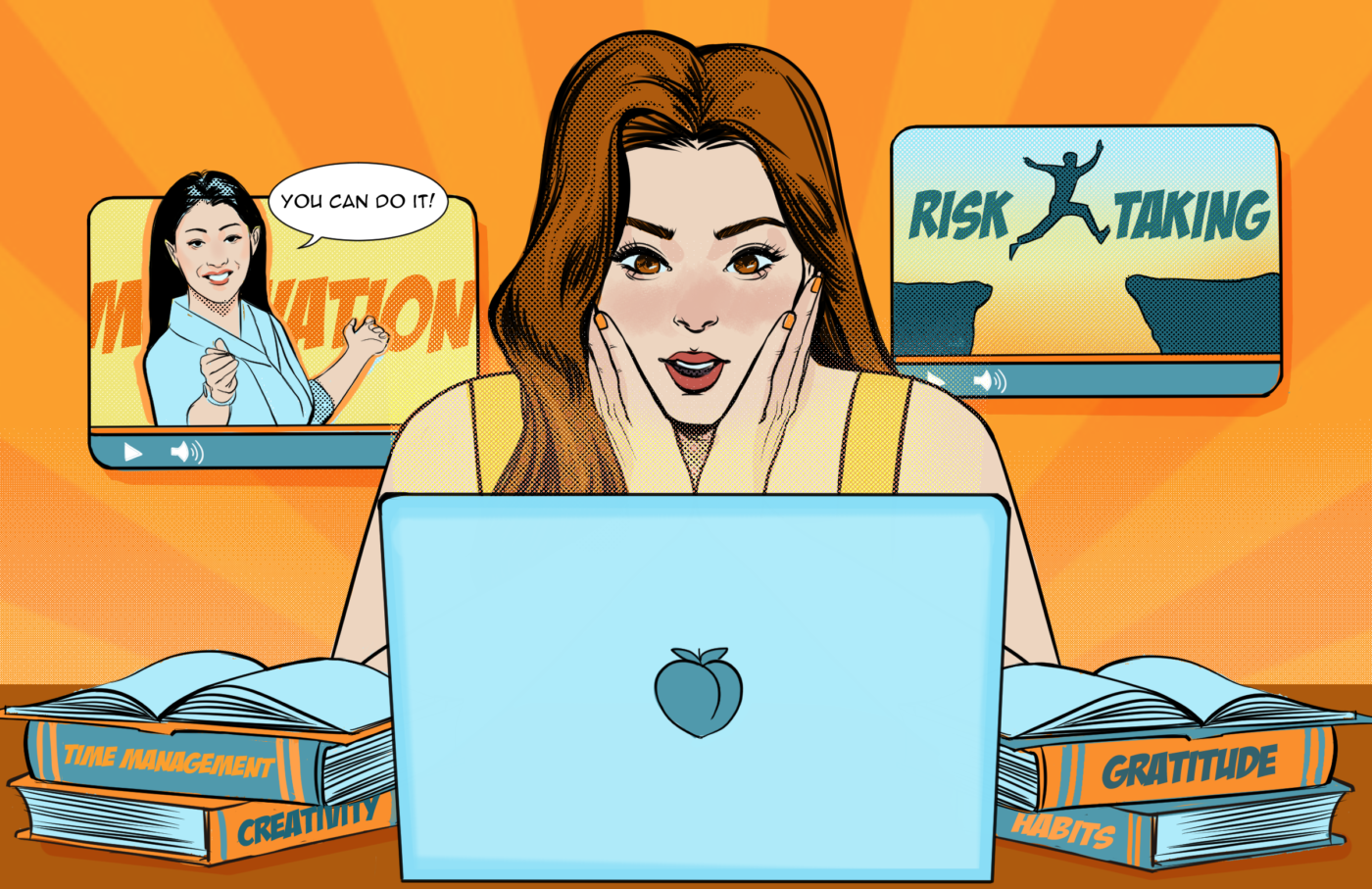DEVELOPING PRODUCTIVE habits, good time-management, or a toned physique—among many others—is an all-too-familiar aspiration shared across generations. This practice, sourced from an array of books, podcasts, videos, and other mediums, is known as self-help—it has grown into a multi-billion dollar industry dominating bookstore shelves and podcast charts today.
As another year begins, many venture into a journey of self-improvement with widely available resources to supplement the vision of elevating oneself. This reveals the importance of curious users to better understand self-help and either manage or exceed the expectations of their own growth.
Seeking growth
The image and possibility of becoming one’s most optimal self has become so enticing that it has motivated an industry to provide information, inspiration, and advice for such a huge audience block. In recent years, the self-help industry’s appeal has reached so far that its audiobooks hit $769 million in revenue in 2018, while book sales marked $18.6 million the following year.
Among individuals who practice self-help, Luigi Alcañeses (4 BS ME & AB EC-H) recalls his first few initiatives in high school alongside his best friend. They would share “daily to-do lists and weekly accomplishments” in a Facebook group they created for themselves as an accountability and productivity mechanism.
Music production sophomore at De La Salle – College of St. Benilde Samantha Chua, another self-help pursuer, shares that her therapist suggested she try mood tracker journaling to aid in her mental well-being. Currently, she consumes self-help Youtube videos from Psych2Go and HealthyGamerGG to better cope with life, build social skills, and improve confidence. “It helps with introspection and encourages me to be more attentive to how others are feeling,” Chua shares.
The tendency to resort to self-help is not surprising, as various factors continue to drive the appeal of the industry. Psychology Department Professor Queena Lee-Chua, PhD emphasizes, “Whatever sphere of life, people feel that they need some guidance… and they feel the world is a bit turbulent now.”
Lee-Chua adds that a lack of holistic education may also be an underlying reason that drives individuals to pursue self-help, along with the correlation of social media usage to the generation’s growing self-consciousness.
There are many factors at play upon one’s immersion into self-improvement. However, both students share the same struggle in recognizing bits of progress. “It really is hard to measure success in the short run, [on] whether it’s paying off,” Alcañeses remarks. Hence, the common imbalance among the consumption, expectation, and application arises.
Two sides of a coin
While many users partake in self-help to unlock an optimized version of themselves, the experience transcends matters of high efficiency and perfect self-esteem. Alcañeses, for instance, has expanded his initial goals of productivity into gratitude journaling and introspection, as he realized the toxicity of social comparison and unrealistic goals.
Alcañeses notes that his most recent and impressionable experience was taking the Coursera offering by Laurie Santos named The Science of Well-being over the quarantine. From this, he realized that “the important aspect of self-help is self-care and the most important thing that you can do is also to rest.”
As an industry that tends to market itself for life-changing results, Lee-Chua reminds that having unrealistic expectations can be particularly dangerous, as some individuals can end up blaming themselves for failing to achieve their goals.
“If there aren’t enough caveats [in the self-help book], and the person is gullible and has low self-esteem, at the worst case—they can have physical health effects, and for psychological books—ill effects in their mental health,” she warns.
Hence, Lee-Chua emphasizes the importance of navigating through different self-help references and thoroughly researching their validity. “Make sure they are humble enough to cite lots of resources… if it’s too easy and it sounds too good to be true, it probably is,” she remarks.
While self-help can be enlightening, inspirational, and even effective for some, Lee-Chua advises the need for a more cautious involvement in the practice—especially in instances where self-help materials fail to work. She urges that if one feels helpless, seeking professional help ought to be a priority.
In the driver’s seat
With the users’ well-being in mind, Lee-Chua emphasizes the importance of consistent application that goes beyond mindless consumption. “Self-help books [may be] easy to read and look at, but for there to really be life change, you need to have not just a desire, you need to have structure for the life change,” she says.
With patience and grit, the uphill battle of self-improvement is a rewarding one. Alcañeses concludes, “Self-help couldn’t give you all the answers and that’s fine… that’s normal. It takes time, you really have to approach it day by day.” Ultimately, it is still up to individuals to weave the threads of their lives in a balance of choice and effort to concretize quality self-help advice.







